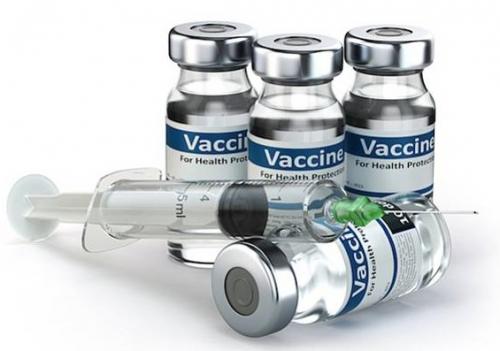Growth factors for Global Vaccine Market

According to Renub Research latest report on
Vaccine industry Global Vaccine Market around the world would be US$
70 Billion by
the year 2024. Vaccine
is considered as one of the best quality science across all streams pertinent
in the field of Vaccinology. Vaccines are derived from the killed or
inactivated pathogens, which are unable to cause any sickness to vaccinated
people. When a person is vaccinated, it is impracticable for them to become
sick with that particular disease. Early vaccination and the completion of
complete vaccination schedule among the infants to their adulthood, helps
reduce the prevalence of vaccine preventable diseases and its burden across the
countries around the world.
Vaccination
is one of the best ways to protect infants, teens and elderly from almost 16
potentially harmful diseases which can be very fatal and may require
hospitalization or even be deadly. Many people think that immunizations are
just for infants while childhood vaccinations can wear off over a period of
time and hence, adults may also be at serious risk of developing vaccine
preventable diseases due to change in lifestyle, age and health conditions.
Today, vaccination has helped to
reduce the global burden of a range of viral and bacterial diseases around the
world. Vaccination against the particular disease not only limits the incidence
of that disease, but it also minimizes the socioeconomic burden of that disease
in the society. An appropriate rate of immunization can lead to the substantial
blocking of transmission for several vaccine preventable diseases. Today, the
world has witnessed the eradication of smallpox and is near to the elimination
of polio from most countries across the world due to the role of immunization
in controlling disease.
List of some of the vaccine Preventable diseases include:
• Diphtheria
• Pertussis (whooping cough)
• MMR (Measles, Mumps and Rubella)
• Polio (poliomyelitis)
• Haemophilus Influenzae type b infections (Hib)
• Influenza
• Hepatitis
• Pneumococcal infections
• Meningococcal disease
• Varicella-zoster (chickenpox)
• Human papillomavirus (Cervical Cancer)
• Tetanus
• Yellow fever
• Japanese encephalitis
How do Vaccines Work?
Vaccines work is to prime one’s
immune system against future attacks by a specific disease. There are vaccines
that work against both bacterial and viral pathogens and disease causing
agents. When a pathogen enters in the immunized person’s body, the person’s
immune system generates antibodies to fight it off. Depending upon the strength
of one’s immune response and how effectively the antibodies scrap off the
pathogen, one may or may not get ill.
Click here for: Vaccine Market Research Reports
When a person is vaccinated with whatever the
version of a pathogen that vaccine contains, the vaccination isn’t so strong to
make them sick, but it has enough for one’s immune system to develop resistance
against the particular pathogen. As a result, the person gets future immunity
against the disease without getting ill; if when exposed to the pathogen.
Today, with increasing community awareness regarding the benefits of vaccines against vaccine preventable diseases, increasing government role in strengthening immunization programs and increasing funding from several governments and non-governments sectors certainly help boost Global Vaccines Market in the near future.
Post Your Ad Here
Comments